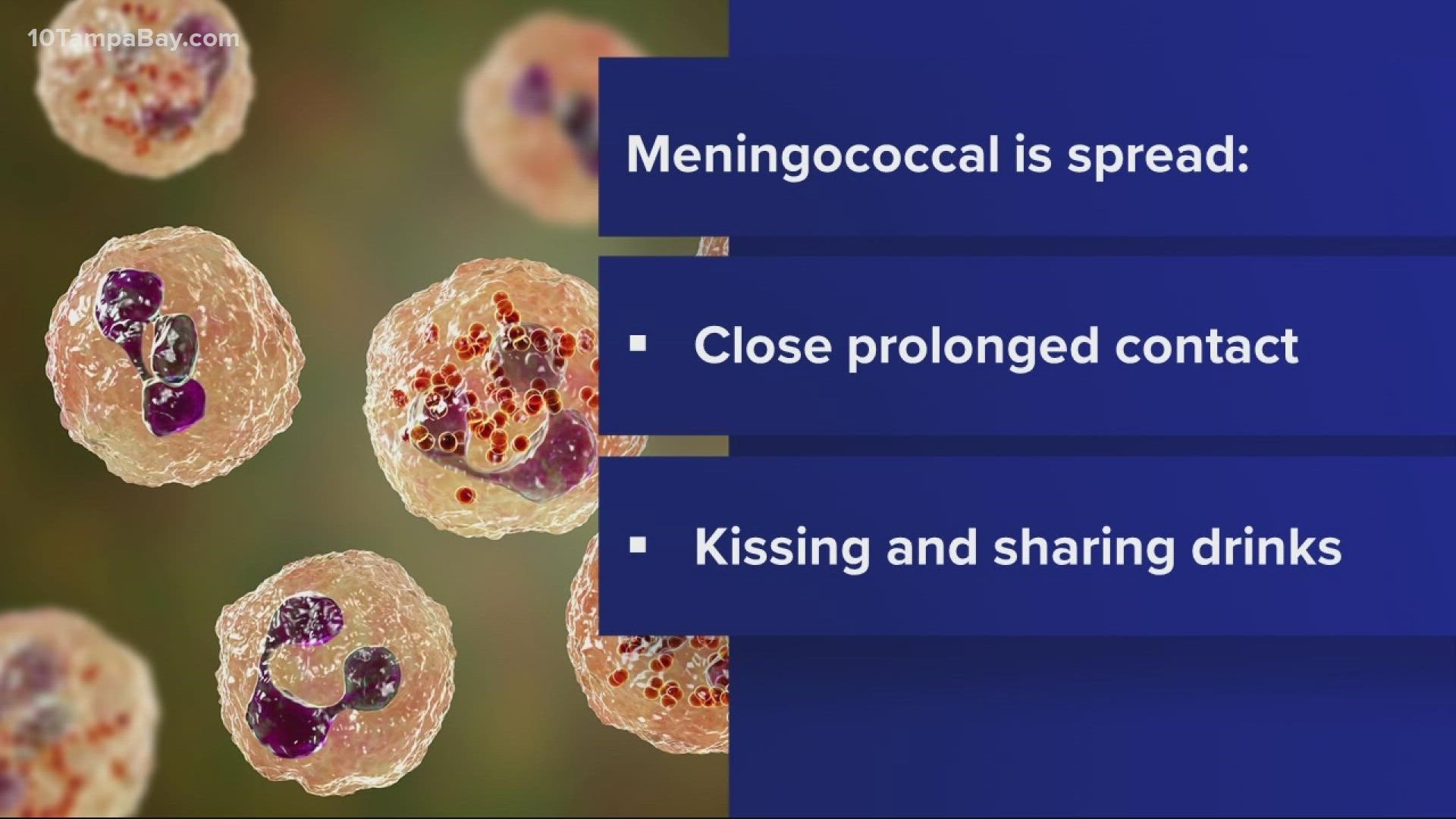TAMPA, Fla. — The Hillsborough County Health Department is warning of an outbreak of meningococcal disease in Florida and encouraging people to get vaccinated to protect themselves.
Already this year, the number of cases statewide has surpassed the five-year average case count. Epidemiologists have been investigating the cases and doing contact tracing.
The Centers for Disease Control and Prevention says the current outbreak has mainly been among gay and bisexual men, including individuals living with HIV.
USF Assistant Professor Dr. Jill Roberts, who specializes in molecular epidemiology, explains, "Unfortunately, it seems that was the population that was struck first, and this virus spreads through close prolonged contact. There is nothing special about Neisseria that it particularly wants to spread in that population."
In response, the CDC is recommending all gay and bisexual men in Florida get one dose of a MenACWY vaccine, which you can learn more about by clicking here. People with HIV should talk to their doctors about a two-dose series of the vaccine.
"The two most common types of meningococcal infections are meningitis (an infection of the lining of the brain and spinal cord) and bloodstream infection, both of which can quickly become deadly," the CDC wrote in an alert on its website.
State health leaders expanded that recommendation to also include any college students, immunocompromised individuals, anyone with HIV or anybody in any of the mentioned groups who received their vaccination more than five years ago.
"We actually worry around the universities because the university can be a pretty good environment for meningitis to spread," said Dr. Roberts.
In fact, in 2007, a 19-year-old USF student named Rachel Futterman died suddenly after contracting the disease. The sorority girl was described as a "picture of health" by those who knew her. Following her death, the school began to require students living on campus to get a bacterial meningitis vaccine.
Meningococcal disease is caused by bacteria, but it's not transmitted through casual contact like breathing air when somebody is standing nearby. Its transmission involves closer and extended contact like kissing or sharing drinks while hanging out.
Dr. David Berger, a Tampa-based board-certified pediatrician, says kids should get their meningitis vaccine around age 11 or 12, and then get a booster shot around five years later.
"The number one prevention is clearly vaccination," Dr. Berger told 10 Tampa Bay.
The CDC reports vaccine orders were down 14% nationwide in 2020 and 2021, compared to 2019.
Dr. Berger said vaccine hesitancy isn't the only reason routine vaccination is down.
"A lot of people missed their checkups because of those two years [of the pandemic], so even people who may wish to be vaccinated may be behind because of that," said Dr. Berger.
"Early symptoms of the disease include fever, headache, stiff neck, nausea,
vomiting, light sensitivity, confusion, and rash. Anyone who has been exposed
or develops symptoms should be evaluated by a health care provider
immediately," the Hillsborough County Health Department wrote.
The department categorized the disease as rare but "potentially devastating" for those who get it.
Click here for more information from the CDC.

